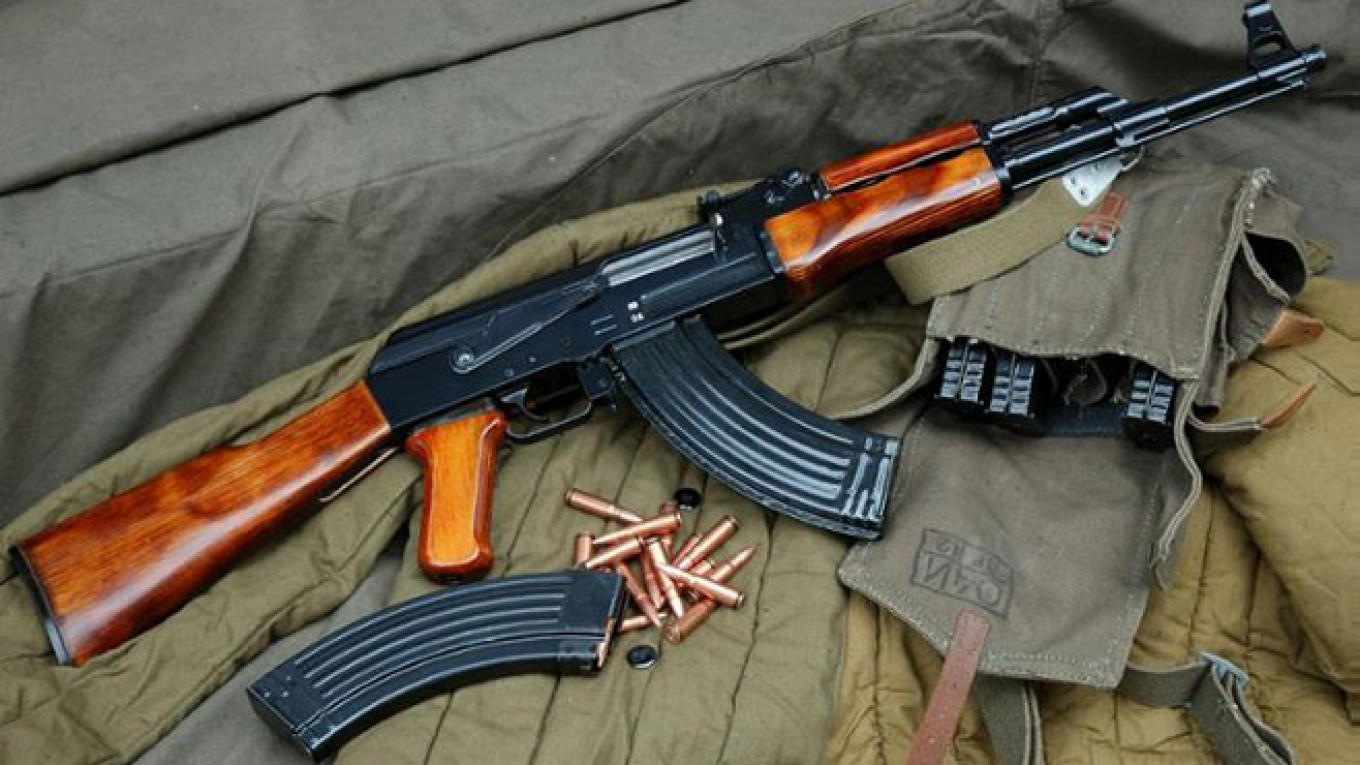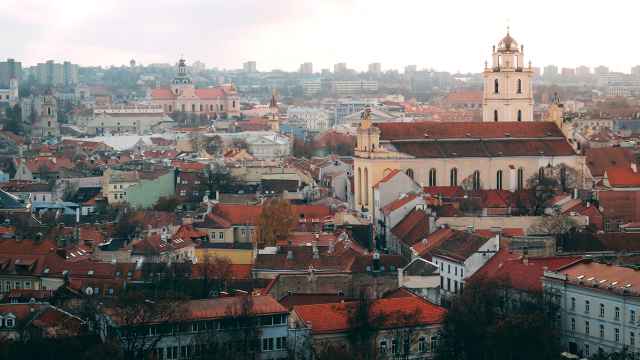As the U.S. and the European Union castigate Russia for allegedly aiding and abetting the violence in eastern Ukraine, the U.S. Treasury in its latest round of sanctions has targeted eight Russian defense companies with asset freezes and bans on any transactions with U.S. companies and individuals.
According to the Treasury's statement, the firms were targeted "for operating in the arms or related material sector in the Russian Federation."
Even though these sanctions are harsher than those faced by the two banks and two energy companies also blacklisted in the latest round of sanctions, they are unlikely to significantly impact the Russian defense industry, according to Ruslan Pukhov, director of the Moscow-based think tank the Center for Analysis of Strategies and Technologies,
Although Russia and the U.S. work together on the International Space Station program and on some civilian and dual-use programs, overall military cooperation between the U.S. and Russia is highly limited and so the impact of sanctions will be "minor," he said.
"What can really hurt companies in the Russian defense industry is European sanctions," Pukhov added.
A large part of the Russian defense industry uses imported European components and technologies in its manufacturing with a particular reliance on machines that build other machines.
"Many machines which produce Russian intercontinental ballistic missiles, Russian submarines, they are bought in Europe — in France, the Czech Republic, Italy, you name it. Some of these are also made in the U.S., but much less," Pukhov said.
The EU has yet to strike the Russian defense industry with sanctions, but if it fails to reach an agreement with Russia on ending the violence in eastern Ukraine within two weeks time, sector-wide sanctions could follow. EU leaders on Wednesday agreed to impose sanctions on Russian companies involved in destabilizing Ukraine.
Further blunting the impact of Washington's newest batch of sanctions, Pukhov said that the Treasury's choice of companies to blacklist does not show any particular rationale.
Three of the targeted defense companies specialize in missiles: surface-to-air missile system producer Almaz-Antey, projectile manufacturer Bazalt and rocket company Mashinostroyenia. They are joined by two firearm producers: the world-famous Kalashnikov Corporation, producer of the AK-47 assault rifle, and precision-guided weapon maker KBP Instrument Design Bureau.
Military electronic equipment producer Radio-Electronic Technologies, control and communications system developer Concern Sozvezdiye and Uralvagonzavod, a government-owned tank producer, also appear on the list.
"There are companies that produce even more deadly equipment, which is even more important for Russia's national security, but they chose these [companies instead]," Pukhov said.
Reactions among the companies targeted have ranged from relative indifference to warnings of impending economic damage for both Russia and the U.S.
State defense conglomerate Rostec, whose holdings included the Kalashnikov Corporation, said in a statement Thursday that the measures "will negatively impact cooperation between a number of Russian and American companies."
"[Rostec] is carrying out global projects with companies from the U.S., the cessation of which could negatively impact the economies of both countries," the company said.
On the other side of the spectrum, the general director Almaz-Antey said Thursday that the sanctions "will not exert a significant influence on Almaz-Antey completing its plans in full," according to an e-mailed statement.
While the impact will likely be minimal, there may even be some silver lining for Russian defense companies. Prime Minister Dmitry Medvedev on Thursday said that Russia may increase its defense spending in response to "the evil" of new Western sanctions, ITAR-Tass reported.
Sanctions "cannot help but affect our budget policy," Medvedev said, adding "we will also have to pay more attention to our defense and security expenditures. We know how to do that."
Russia has already pledged $700 billion to an ambitious program aimed at modernizing its defense industry and military by 2020.
See also:
German Trade Body Fears Sanctions Will Dent Business With Russia
Contact the author at d.damora@imedia.ru
A Message from The Moscow Times:
Dear readers,
We are facing unprecedented challenges. Russia's Prosecutor General's Office has designated The Moscow Times as an "undesirable" organization, criminalizing our work and putting our staff at risk of prosecution. This follows our earlier unjust labeling as a "foreign agent."
These actions are direct attempts to silence independent journalism in Russia. The authorities claim our work "discredits the decisions of the Russian leadership." We see things differently: we strive to provide accurate, unbiased reporting on Russia.
We, the journalists of The Moscow Times, refuse to be silenced. But to continue our work, we need your help.
Your support, no matter how small, makes a world of difference. If you can, please support us monthly starting from just $2. It's quick to set up, and every contribution makes a significant impact.
By supporting The Moscow Times, you're defending open, independent journalism in the face of repression. Thank you for standing with us.
Remind me later.






